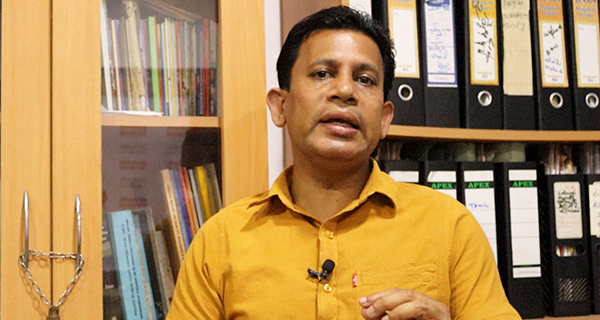Ravi Kumudesh, President of the Association of Medical Laboratory Professionals, points out what should be done to prevent delays in PCR tests and to obtain accurate data.
There is a lot of talk in the country about PCR delays and it is important to understand how a PCR test can be performed in a laboratory because the provisions, reactions, and machinery provided by some departments seem to make sense. He also says no.
He points out that a PCR test is currently performed in a conventional manner, using two parts, and that the test is followed by an analytical process that begins with the PCR machine and that the PCR process takes about three hours. What is being done is that although there are some technological tools all over the world to speed up both methods, Sri Lanka only has automated analytics machines.
He pointed out that at present there are about 30 automated analyzers in public sector laboratories in Sri Lanka but they do not have the required precision to use them and some of the analyzers are not capable of maintaining the required speed.
Ravi Kumudesh also said that the donations were made in accordance with the needs of various parties and donors rather than the technical requirements of the purchasers. That it is not happening today.
He said that some of the analyzer machines available today do not even have manual speed and urged the health sector to focus on increasing the speed of these given analytical machines in order to increase the speed and capacity of these PCR tests.
He points out that although there are good equipment in the market at a very cheap price in the world at present, it has not been possible to use those machines due to the informal process that takes place in purchasing these devices.
Today, he says, corona medical tests can be performed in as little as 20 minutes, with state-of-the-art PCR tests, which do not require large laboratory or safety facilities and can be performed in general laboratories.
He points out that there are 71 base hospitals and 493 district hospitals in the country and that PCR tests can be carried out using local PCR testing machines in all these places. This is because of some officials who have business ideas and there are no medical laboratory professionals who use these machines in these technical evaluation committees.
Ravi Kumudesh called for facilities to procure these machines to expedite PCR testing, saying that the next problem was with the reagents and that the tests would have to be repeated when the sensitivity was low. It is not possible to get them at that price because a mafia is active in this.
He says that although the laboratories, which are currently running for eight hours, are ready to operate 24 hours a day, there are some administrators and specialists who are obstructing it and if they are removed, the correct machinery is provided and the supply service is streamlined, PCR tests can be carried out up to twice as much as at present. For a few months or so, technical evaluation committees will be set up to represent all sectors.
